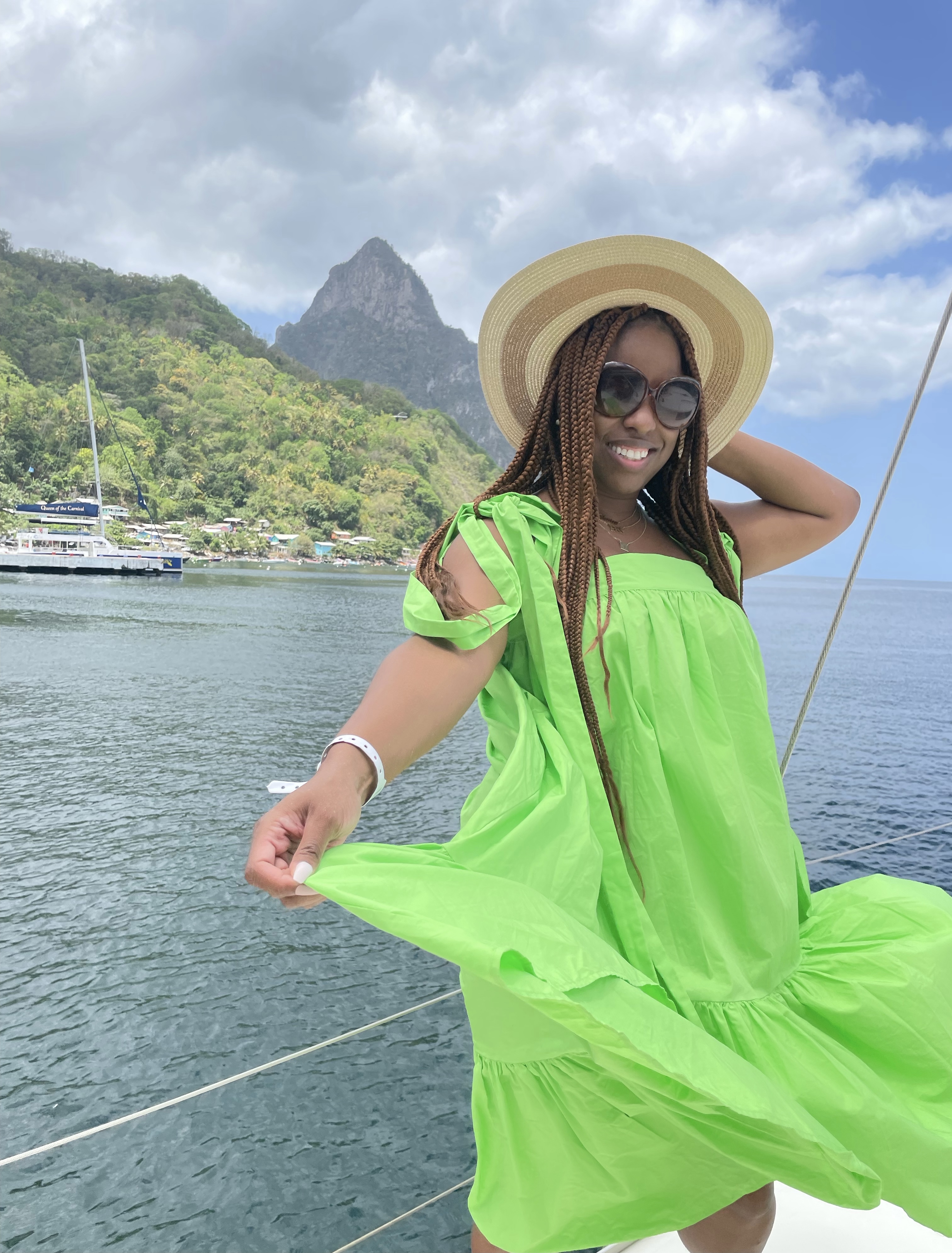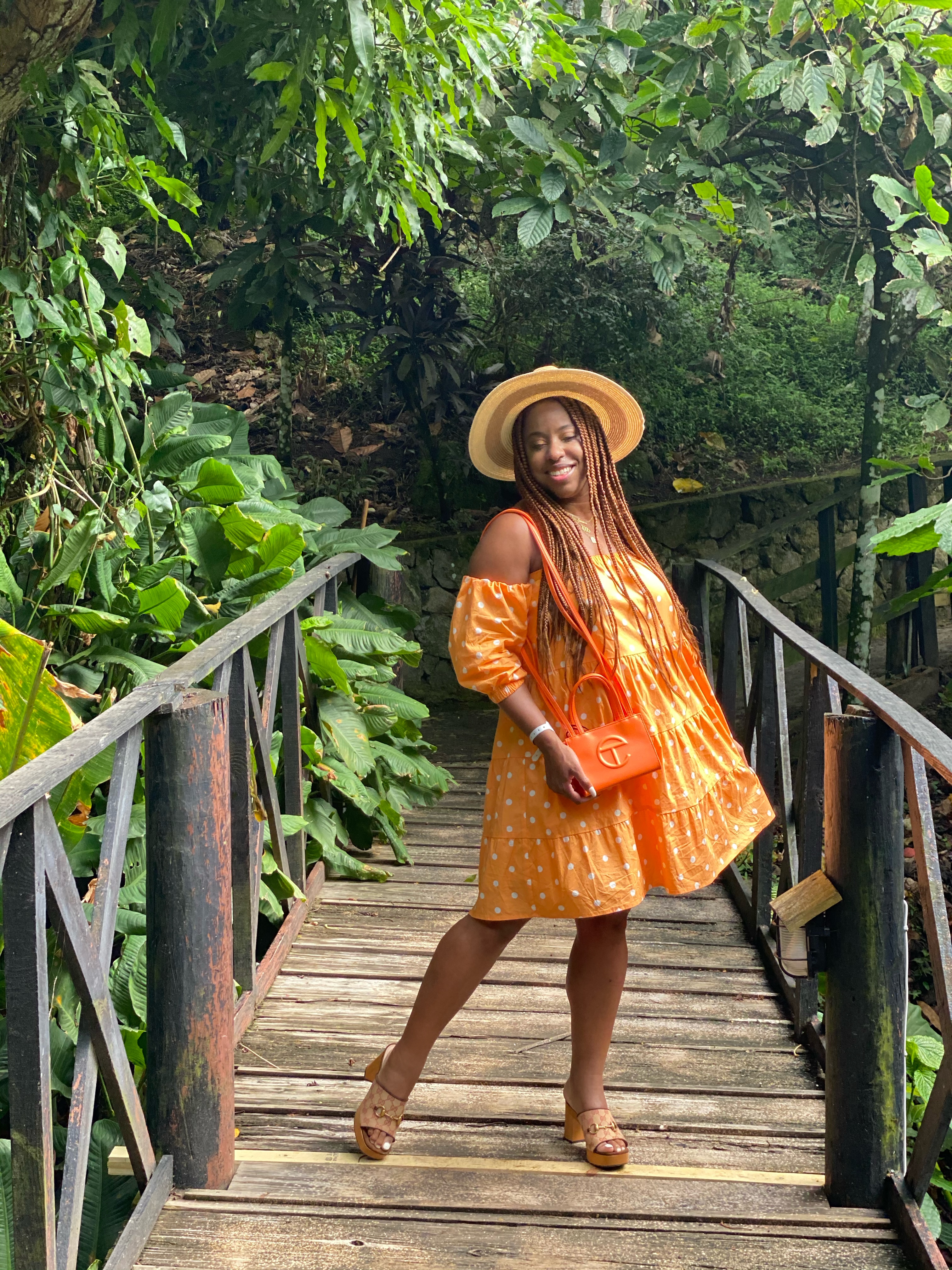Guys, what a year and a half it’s been, right? Covid totally changed everything, and we are all still reeling from the aftereffects as we try to piece our lives back together. It’s totally changed my perspective on life — not only seeing so much loss and grieving people in my own circle who passed away or fell dramatically ill, but dealing with my own asthma which somehow decided to worsen during the pandemic (take it from me but the game of ‘is it allergies or is it covid?’ is not fun to play).
Anyway, it’s transformed my perspective on life, namely, realizing that it is short and more precious than I even considered before. That said, I’m all about treasuring every moment and valuing family, relationships, connections, and experiences over everything these days. So, when my friend Lexi mentioned the prospect of traveling to St. Lucia for her birthday — my first opportunity to travel internationally during Covid — I jumped at the chance. But I had to make sure it was safe for me, my friends, and the island locals first.

Get a covid test.
The first order of business was getting tested. Though I am vaccinated — and reportedly if a vaccinated person passes covid to an unvaccinated person, it’d be like a cold — I still feel like you can never be too safe. And several countries require a negative covid test within 72 hours of your departure.
An important note: pay attention to the kind of test. My same day testing site provided PCR tests and when I tell you the airline attendant searched the entire paper printed out with my negative results until he saw PCR. Then he remarked ‘that’s the magic word!’ Make sure you are taking the right test for the country you are entering.
Another tip: be sure your destination accepts the testing site. My go-to testing site is not eligible in Japan or Jamaica, so it’s important to double check.
Fill out all the health forms.
St. Lucia required that we fill out travel forms verifying that we don’t have covid and haven’t come into contact with anyone who might have it. We had to mark any symptoms we have, all the medication we’re taking, and more. Those forms then had to be printed out along with the negative covid test results, and then presented before we boarded the plane and after we landed in St. Lucia.
Bring your vaccination card.
If you’re vaccinated, you’re familiar with the little card you received marking that you received a recognized vaccine, whether Pfizer, Moderna, or Johnson & Johnson. My father immediately got me a cute Amazon holder for it, and I brought it on the plane just like it was a passport.
In St. Lucia, they looked at my vaccination card and then gave me a white wristband which meant I could travel anywhere on the island. Unvaccinated people had to stay on the resort. They were also sticklers about you passing the 2-week period post your last (or only) vaccination shot where you’ve reached peak immunity, as they should be.
This should go without saying but still wear a mask everywhere and sanitize regularly.
One thing I was very sensitive about is not spreading covid — or really any cold — on the island. So, for the most part, my friends and I stayed on the resort and wore a mask.
The only time we’d remove it is if we were outside and by ourselves at the pool. When we left the island for a boat ride, we removed our mask when we were outside on the deck of the boat and far from the captain.
It’s so important for you to be respectful and considerate of locals in countries you’re traveling to, especially if they don’t have the same access to vaccines or even medical treatment that you have.
If I can breathe comfortably in my masks with asthma LOL, I’m pretty sure everyone can. It is a small task that goes a long way in protecting yourself and those around you. Also I hand sanitize like it’s going out of style. PS need another point in favor of masks? I haven’t got a cold all year.
Arrange for your return covid test as soon as you arrive at your destination.
Since January 2021, Americans most be tested prior to returning to the country, within 3 days of your return trip. If you test positive, you will have to quarantine in the country you’re visiting for 2 weeks, at your own expense. So, be careful and intentional about getting your test.
In America, you may be used to an at-home covid test administered at your leisure, or a testing center that you can drop in and out of — and get your results in 24 hours. That is not the case in most places you’ll travel internationally.
Some hotels do offer tests at their location, but many do not. Inquire with the receptionists and make arrangements as soon as you can, so you aren’t stuck in the country you visited because you didn’t get your results in time.
In St. Lucia, we went to a clinic that tested my group and then forwarded the results to our resort. That test took almost all morning so block time off for it. My sister, who traveled to DR, took the test at her hotel but there was also a long line and waiting period.
I made arrangements just in case I had to stay the 2-week period but thankfully I did not. I would recommend having a Plan B in place, because it has happened to some people I know.
Any more questions? Feel free to ask in the comments.
